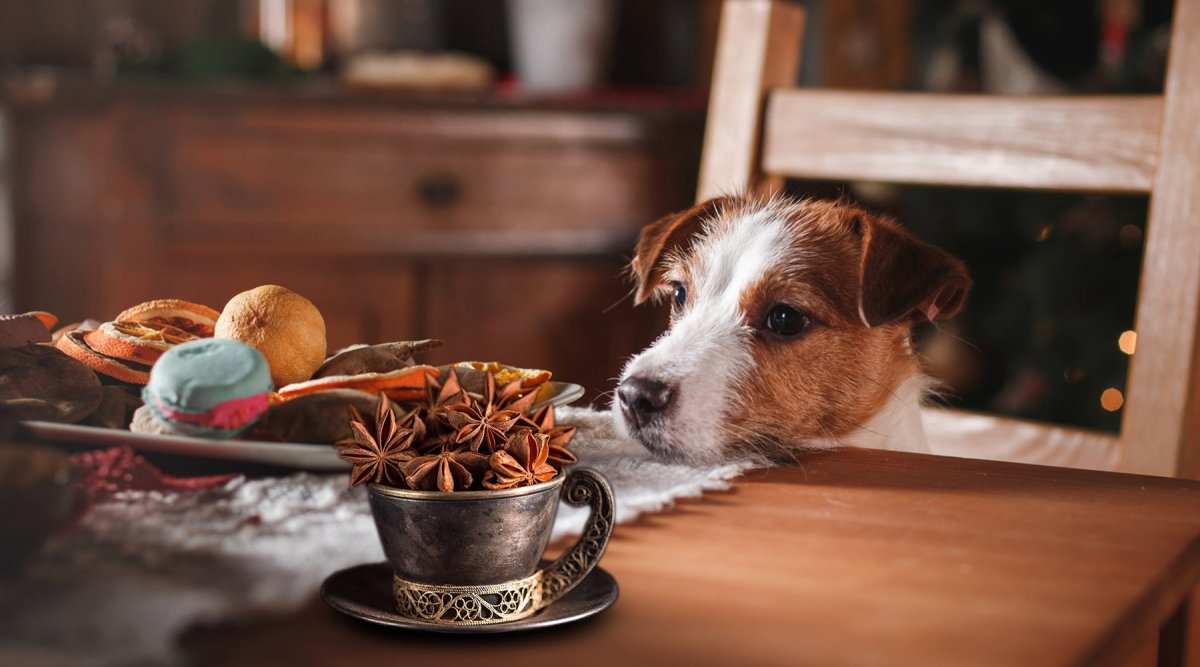Cold, ice and hot air. When winter sets in outside, we are not the only ones who have to dress warmly. Especially in the cold season, our pets' fur and skin need special attention. In the third installment of our "Fit through the winter" series, I explain what you should pay attention to when caring for your four-legged friend's coat and skin in winter.
Why is coat care important?
The fur of dogs and cats is a natural talent. It protects against cold, moisture, heat, UV rays and injuries when your four-legged friend wanders through the undergrowth. Especially in winter, it is important that you as the owner support these protective functions with the right care.
While we hang our coats, scarves and gloves on the coat rack after a walk, your four-legged friend unfortunately cannot do the same with his winter coat. The constant change between warm heating air and the wet and cold during a walk not only causes your pet to shed in winter, but also puts a strain on your four-legged friend's skin and coat. Dry skin, itching and a dull, brittle coat can be the result.
How do you care for the skin and coat properly?
The skin of dogs and cats is the boundary between the organism and the environment. It protects against viruses, bacteria, fungi or other harmful substances that can cause allergic or infectious reactions.
Proper care helps the skin to remain healthy and strong and also ensures that it can perform its important task of growing a resistant and shiny coat. However, dry skin in dogs can also affect coat growth. The following tips will keep your four-legged friend's skin and coat healthy even in winter.

Regular combing
In rain and snow, dirt and lumps of ice can build up in the coat. To free your pet from this, it is important that you comb it regularly. This prevents matting and helps your four-legged friend to get rid of dead fur. Because neither matted nor dead hair warms. If you have difficulty brushing your four-legged friend's coat, a suitable grooming spray can help and at the same time support the regeneration of the skin.
Regular combing allows new, warming fur to grow back and you collect the hair before it ends up on the carpet. At the same time, the blood circulation of your four-legged friend is stimulated - and you give him a soothing massage. We also recommend our coconut oil for dogs for coat care.
Bathing your dog in winter
Many dog owners avoid bathing their pets in winter. They fear that their pet could catch a cold. Yet fall and winter are the season for wet, muddy dog fur.
If you pay attention to a few points, your four-legged friend can also enjoy a shower in winter:
- Do not wash your dog outside in the cold.
- Dry thoroughly and blow-dry if necessary.
- Keep the freshly washed dog warm.
- If your dog is only dirty on its paws and underbelly, it is sufficient if you only wash these areas thoroughly and then dry them.
- Make sure that you don't wash your dog too often, otherwise the fatty layer of his skin can dry out and lose its protection. Use a moisturizing shampoo.
Caring for the paws
If you have a long-haired four-legged friend, I recommend trimming the fur between the toes or having it trimmed. This is because snow and ice balls also like to get stuck in the hair between the toes, which can cause your pet pain when walking.
If necessary, clean your dog's sensitive paws with warm water after a walk to remove road salt and grit and care for the pads with a special paw care product. I would only recommend paw shoes in an emergency, as the sweat glands on the paws cause fluid to collect in the shoes, which can lead to eczema. Even though cats are generally less sensitive on their paws, it is best to check them briefly when you return and clean them with a damp washcloth if necessary.
Wrap up warm
Going for a walk is of course also on the agenda in winter. Most dogs have enough of their own fur to protect them from the cold. However, if your four-legged friend has very thin fur or freezes quickly, a dog coat can help. A dog coat keeps them warm and protects them from the cold. With a wide selection of sporty, robust, timelessly elegant and highly fashionable coats, there is something to suit every four-legged friend.
When buying, you should make sure that the coat is water-repellent and also protects the chest - puppies or young dogs in particular often have little fur on their underbelly. If your dog gets cold quickly, it is better to take him for several short walks instead of trudging through the snow for hours on end and dry him off carefully after the walk. Cats usually have a particularly thick winter coat and are less likely to freeze.
Ventilate the home regularly
We humans like to be comfortably warm in winter, but dry heated air is not healthy for either humans or animals. The warm air dries out the skin and mucous membranes. Conjunctivitis and breathing difficulties can be the result. To let the dry air out, it is best to ventilate once a day. To humidify the air, you can place a bowl of water next to or on the heater. The water, which should be changed daily, evaporates and humidifies the air. Hanging up wet laundry has the same effect.
Natural oils, herbs and vital substances for the best winter protection
Your four-legged friend's coat and skin suffer from the constant changes in temperature, the weather and the dirt caused by rain and wet conditions. During the winter months, I therefore recommend adding suitable oils, fats and vital substances to the food. This not only makes the coat shiny, but also ensures healthy skin.
If your four-legged friend's skin is already irritated, itchy or flaky, natural oils with important omega-3 & 6 fatty acids and E vitamins can be added to their food, such as salmon oil for dogs or Fellharmonie food oil. This helps to strengthen the natural skin barrier and restore the body's own protection. After 2-6 weeks, your pet's skin should improve and the itching should decrease.
Dry skin in dogs due to diet?
Dry fur and/or dry skin in dogs, hair breakage, hair loss or dandruff are often signs of nutritional deficiencies. A special coat & skin mix of natural herbs such as rosehip, yarrow, dandelion and nettle helps to compensate for nutritional deficiencies and is ideal for prevention. Diatomaceous earth and algae additionally strengthen the skin and coat and are particularly suitable for allergic dogs. Coat Harmony Vital Powder can also support your pet during the winter.
If you combine the various measures, your four-legged friend can look forward to a warm winter with a robust coat and healthy skin.
Feel free to share this article with other pet owners who are interested in natural coat and skin care tips for their four-legged friends.





